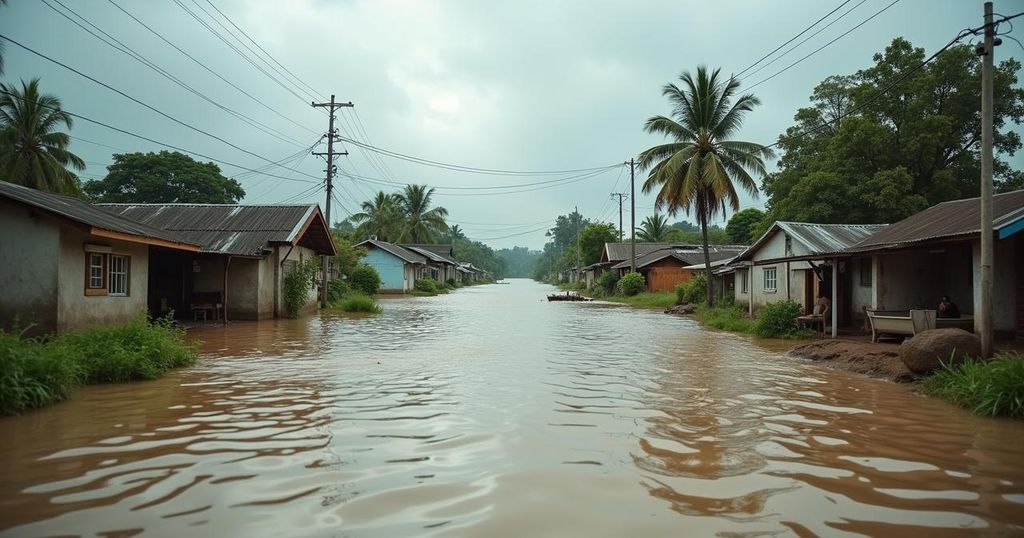Severe Flooding in South Sudan Displaces Over 241,000 Amid Worsening Humanitarian Crisis
Flooding in South Sudan has affected about 893,000 people and displaced over 241,000, marking the worst disaster in decades as reported by the UN. Key supply routes are blocked, hindering assistance. The country, facing chronic instability and a recent influx of refugees from Sudan, is experiencing worsening humanitarian conditions amid political delays.
The recent floods in South Sudan, described as the most severe in decades, have affected approximately 893,000 individuals, forcing over 241,000 to abandon their homes according to the United Nations Office for the Coordination of Humanitarian Affairs (OCHA). The flooding has specifically impacted 42 out of the 78 counties in South Sudan, notably affecting the Unity and Warrap states, which together represent more than 40% of the affected population. Due to the persistent heavy rainfall, vital supply routes have become impassable, severely limiting the delivery of humanitarian aid. As the world’s youngest nation, South Sudan has been grappling with chronic instability, economic challenges, and violent conflicts since its independence from Sudan in 2011. The World Bank has expressed concerns that these floods exacerbate an already dire humanitarian scenario characterized by significant food insecurity, economic decline, and ongoing conflicts. Alarmingly, projections indicate that approximately nine million people, including refugees, will require substantial assistance in 2024. Additionally, the ongoing conflict in Sudan had spurred over 797,000 refugees to seek refuge in South Sudan by September of this year, with a significant portion being returnees. The country now faces further political turbulence as the government has once again postponed elections originally scheduled for December, extending the transitional period by two additional years. Key elements of the agreed transitional accord from 2018 remain unaddressed, including the establishment of a new constitution and the merging of opposing military factions. This political stalemate has led to growing impatience among the international community and local citizens alike, prompting calls for measurable commitments from South Sudan’s leaders towards a democratic future. Furthermore, the nation’s oil resources, which are critical to its economy, have suffered a setback following damage to a crucial export pipeline in Sudan earlier this year.
The flooding in South Sudan has highlighted the country’s vulnerability to climate-related disasters, compounded by years of political instability and conflict. Despite its wealth of natural resources, particularly oil, the nation continues to face challenges that threaten its stability and economic prospects. The concurrent situation in neighboring Sudan has further strained South Sudan’s resources, leading to an influx of refugees, which adds to the humanitarian burden. With a history of civil conflict and ongoing economic challenges, South Sudan’s recovery is impeded by both environmental and political factors. This flooding crisis not only highlights the immediate needs of the population but also the systemic issues that hinder long-term recovery and stability.
In summary, the unprecedented flooding in South Sudan has significantly impacted hundreds of thousands of residents, with a substantial proportion displaced as they seek safety from the rising waters. As humanitarian conditions deteriorate amid continuing conflicts and political delays, the situation requires urgent attention from the international community and decisive actions by South Sudan’s leadership to fulfill commitments towards peace, stability, and development. Without effective governance and timely humanitarian aid, the plight of the South Sudanese people is likely to worsen.
Original Source: www.barrons.com




Post Comment